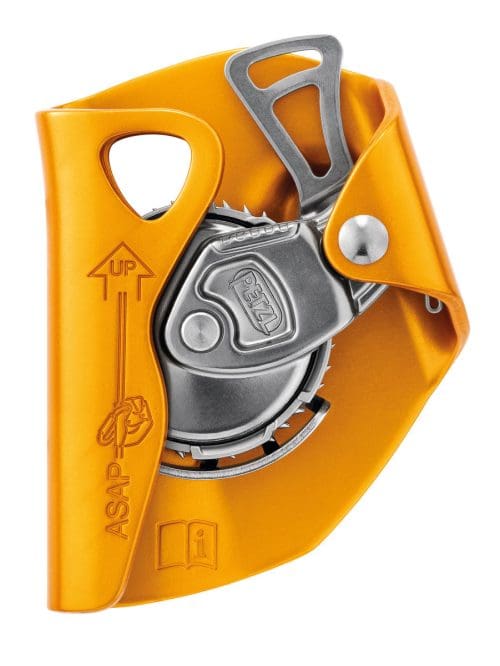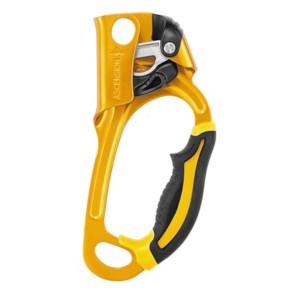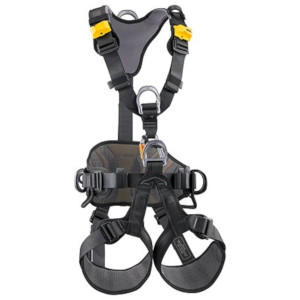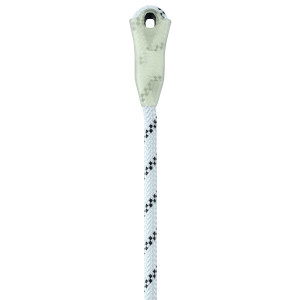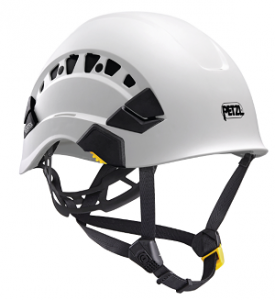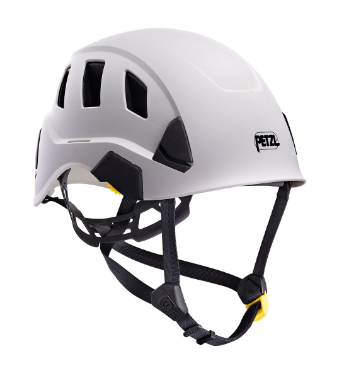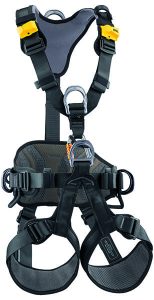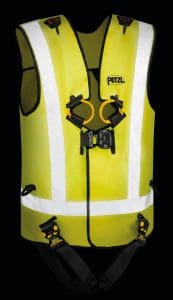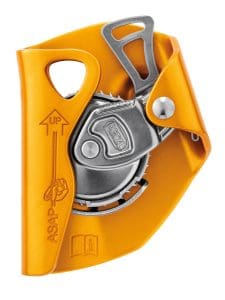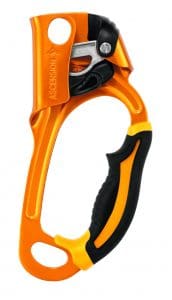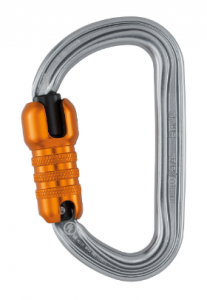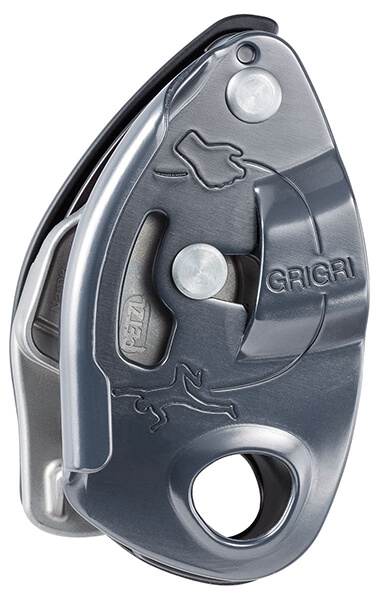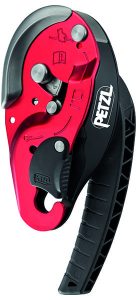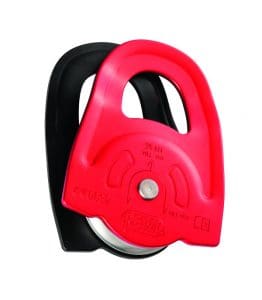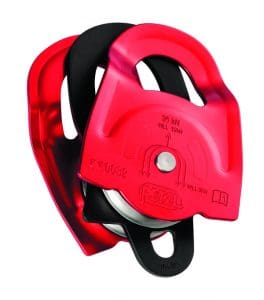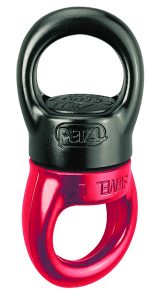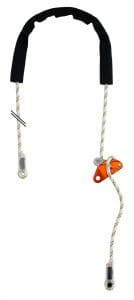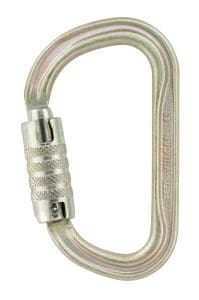Petzl Safety Products
Petzl is a family business that, over the years, has become the largest European manufacturer of personal protective equipment for those who work and play in darkness or at height. For 50 years, Petzl has been built around four pillars, four fundamental values that motivate every decision they make: remaining a stable family business, encouraging innovation to imagine the best solutions, insisting on industrial excellence with the goal of zero defects, and remaining engaged with their communities by providing global best practices. All of their products are invented and developed at their headquarters in the heart of the French Alps. Petzl is also present in over 55 countries and sells more than 7 million products every year. From pulleys, platforms, energy absorbers and mobile fall arresters to rope clamps, ascenders, descenders & harnesses, Petzel safety products help minimize fall risks and increase safety for your employees.
Frequently Asked Questions
The chemical make-up of markers, paints, adhesive tapes, and stickers may be incompatible with nylon or polyester. These chemicals can weaken the fibers and alter the structure and strength of textile products.
As a precaution, Petzl recommends using the identification label, or the end of the non-load bearing excess webbing, to mark a product.
The WLL is the maximum authorized load that can be borne when working with a device.
- It is over 10 years old and made of plastic or textiles
- It has been subjected to a major fall or load
- It fails to pass inspection
- Its reliability is in question
- Its entire history is not known (e.g. found or second-hand product)
- When it becomes obsolete due to changes in legislation, standards, technique or incompatibility with other equipment, etc.
Destroy retired equipment to prevent further use. To learn more, download the “PPE inspection” pdf file from the individual product page.
All our PPE products are now identified by a serial number.
This number may be marked in a number of ways: laser, engraving, label, etc. It allows us to identify our products.
To find out the year of manufacture, refer to this detailed serial number in the following manner:
Example for recent PPE: 09 365 AB 1 234
- 09 corresponds to the year of manufacture
- 365 corresponds to the day of manufacture in that year
- AB is the code of the person who inspected the product
- 1234 is the individual product number
The oldest harnesses may be marked this way: 99 289 A
- 99 is the year of manufacture
- 289 is the day of manufacture in that year
- A is the code of the person who inspected the product
Older connectors may be marked this way: 05 06
- 05 is the month of manufacture in the year
- 06 is the year of manufacture
Clean and dry your equipment, if necessary. Store your equipment in a temperate, dry place protected from UV rays and chemicals.
For further information about caring for your equipment, download the “PPE inspection” pdf file from the individual product page. For more specific questions, do not hesitate to contact Petzl’s After-Sales Service:
SPORT contact page – PRO contact page
For plastic or textile products, the maximum lifetime is ten years from the date of manufacture (See: How can I find out the age of my Petzl PPE?.)
The lifespan of metal products is not limited.
Warning: An unusual event may require you to retire a product after only one use. This may involve the type and intensity of use, or the environment in which it is used: aggressive environments, sharp aretes, extreme temperatures, chemicals…
To learn more, download the “PPE inspection” pdf file from the individual product page.
In addition to the inspection before each use, an in-depth inspection of your PPE must be carried out by a competent inspector. The frequency of the in-depth inspection must be governed by applicable legislation, and the type and intensity of use. Petzl recommends an inspection at least once every 12 months.
To help maintain product traceability, do not remove any markings or labels.
To learn more, download the “PPE inspection” pdf file from the individual product page.
Use the contact page to contact Petzl Sport or Petzl Pro.
PPE is Personal Protective Equipment, equipment worn or carried by the user.
PPE is classified in three categories:
Category 1: minor hazards, light mechanical impacts, solar radiation (e.g. glasses, gloves)
Category 2 : serious hazards (e.g. ventilated helmets, crampons)
Category 3 : major or deadly hazards (e.g. harnesses, carabiners, ice axes)
PPE helps protect a person from deadly or serious health hazards. It includes all equipment designed for protection from long falls: rope clamps, descenders, harnesses, lanyards, webbing, slings, ropes, energy absorbers, carabiners, pulleys, swivels, rigging plates, ice axes, snow stakes and pitons. It excludes anchor points that are an integral part of a structure.
To analyze defects in materials and manufacture, contact our After-Sales Service to get the address to which you should return the defective product in your country:
After-Sales Service Sport or After-Sales Service Pro
Exclusions from the guarantee:
- normal wear
- oxidation
- leaking batteries in headlamps
- modifications or alterations
- poor storage
- poor maintenance
- damage due to accident or negligence
- damage due to use of product for which it is not designed
The Petzl guarantee also does not apply if:
- the serial number is no longer legible
- any label has been removed from a harness
- a helmet has been written on with a marker or covered by stickers
- the product has been modified or repaired by a third person
If the product is covered by the guarantee, and is reparable, it will be repaired immediately and quickly returned to you. Irreparable products will be replaced.
If the product is not under guarantee, but is reparable, a repair quote will be proposed before repair. You will not be billed without your consent.
After analysis, Petzl will decide to repair, replace or return the product as is to the address you have provided. For a headlamp, please remove the batteries before sending it.
For France: no, simply send the product to Petzl with your comments, and most importantly, your contact information.
For other countries: contact the Petzl distributor in your country.
Sport contact page or Pro contact page
Whether you’re retiring your helmet, headlamp, harness, or hardware, it is important to properly manage the last stage of your gear’s life. Below, you’ll find a guide to the gear retirement process. How can you make it unusable? Where should you dispose of it?
Download the Guidelines for retiring your equipment [.pdf – 1.2Mo]
Overview of Petzl safety products
Harnesses for work positioning and suspension
General Information on Falls in the Workplace
The risk of falling is a key concept to master when working at height. The severity of a fall depends on independent factors:
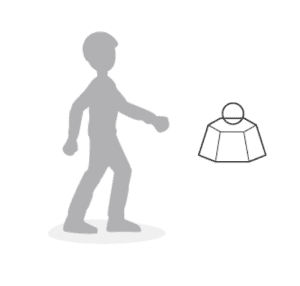
The weight of the user, including equipment:
The greater the weight, the more energy to be dissipated during the fall.
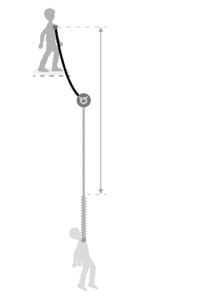
The length of the fall:
The longer the fall, the more energy to be dissipated during the fall. The risk
of hitting an obstacle is also greater.
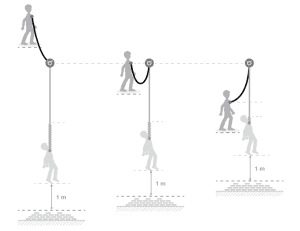
The position relative to the anchor:
When the worker moves above their
anchor, the severity of the potential fall
increases. The fall factor concept is
sometimes used to describe the worker’s
position relative to the anchor and the
severity of the fall.

